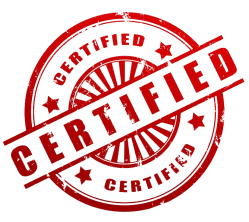Project Management is a crucial aspect of any successful business, and the Project Management Professional (PMP) certification is a globally recognized and respected standard in the industry. If you’re looking to advance your career in project management, becoming a PMP can help you stand out from the crowd and open up new opportunities.
Today we’ll be exploring the benefits of PMP certification, the eligibility requirements, and the steps you need to take to become a PMP. We’ll also be sharing tips and resources to help you prepare for the PMP Exam, so you can increase your chances of success. Whether you’re just starting out in project management or looking to take your career to the next level, this blog will provide you with the information and guidance you need to achieve your goals.
What are the application requirements?
- Education and Experience: To apply for the PMP Exam, an individual must have a secondary degree (high school diploma, associate’s degree or the global equivalent) and at least five years of project management experience, with 7,500 hours leading and directing projects;
OR
An individual must have a bachelor’s degree or the global equivalent and at least 3 years of experience leading and directing projects, with a minimum of 4,500 hours spent in this role. - Project Management Education: The individual must complete 35 hours of project management education prior to taking the PMP Exam. This education can be obtained through a variety of sources, including formal classroom training, self-study, and online courses. Visit PMI’s Authorised Partner Course Registry or contact your local PMI chapter to find an accredited course.
Apply for the PMP certification here
What is the exam structure?
The PMP exam comprises 180 questions and is divided into three sections. In total, you will have 230 minutes to respond to the questions and two 10-minute breaks. The first break will appear after you complete and review your answers to questions 1 – 60 and the second break will appear after you have completed and reviewed question 120. Once you review your responses and start your break, you will not be able to return to the questions from the previous section of the exam.
The exam is divided into three (3) performance domains. A domain is a high-level knowledge area that is essential to the practice of project management.
| Domain | Percentage of Items on the Exam |
| People | 42% |
| Process | 50% |
| Business Environment | 8% |
| Total | 100% |
Domain I: People
This section covers the power skills required to excel as a project manager:
- Conflict management
- Team leadership
- Support team performance
- Team and stakeholders empowerment
- Ensure team members/stakeholders are adequately trained
- Build a team
- Remove obstacles for the team
- Negotiation
- Collaborate with stakeholders
- Build a shared understanding
- Engage and support virtual teams
- Create team ground rules
- Mentorship
- Apply emotional intelligence
Domain II: Process
This section covers the technical skills required for project managers:
- Execute project with the urgency required to deliver business value
- Communications management
- Risk management
- Stakeholder management
- Budget and resource management
- Schedule management
- Quality management
- Scope management
- Project integration
- Change management
- Procurement management
- Configuration management
- Project methodology/approach
- Project governance
- Issue management
- Knowledge transfer for project continuity
- Manage transition from project mode to operational mode/ Project closure
Domain III: Business Environment
This section covers the connection between projects and organizational strategy:
- Project compliance management
- Benefits management
- Evaluate and address external influences on project scope
- Support organisational change
It’s important to note that the PMP Exam is not an easy test, and many PMP aspirants find it challenging. The questions are designed to be scenario-based, testing your ability to apply your knowledge in real-world situations. To prepare for the PMP Exam, it’s recommended to study the PMBOK® Guide and take practice exams to build your confidence and familiarize yourself with the exam format. Check out the PMI website to find other information related to the exam.
By following the steps outlined in this blog, you’ll be well on your way to becoming a PMP. Remember to take your time, study thoroughly, and make use of the many resources available to you. With dedication and hard work, you’ll be able to join the ranks of the thousands of PMPs around the world and reap the benefits of this respected certification. Good luck!

No responses yet